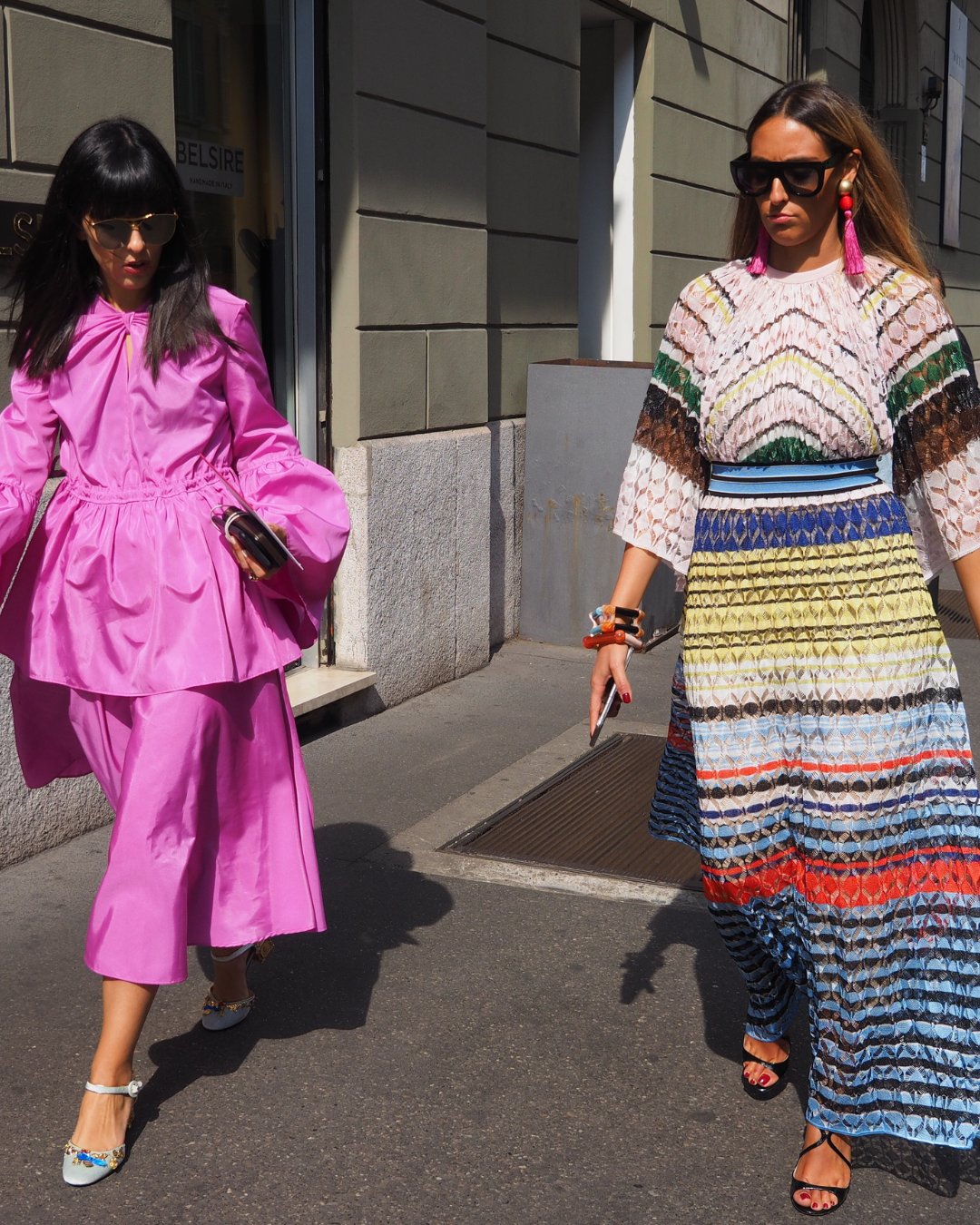Vestiaire Collective Expands Ban on Fast Fashion Brands, Remake Creates Relief Fund for Bangladeshi Workers Amid Wage Dispute Protests, New Report Critiques Fashion’s Climate Strategy
Photo-Illustration: The Sustainable Fashion Forum | Shutterstock
Welcome to WEEK/END, your quick-hit guide to this week's sustainability news at the intersection of fashion, ethics, sustainability, and business. Stay informed, stay engaged – all in a quick read.
Vestiaire Collective Expands Ban on Fast Fashion to Include Gap, H&M, Zara, Urban Outfitters, and More
Photo: Vestiaire Collective’s New ‘Think First, Buy Second’ Campaign | Vestiaire Collective
Vestiaire Collective, a luxury resale platform, has expanded its ban on fast fashion brands, now including H&M, Zara, Uniqlo, and others, as part of its efforts to combat overproduction and overconsumption in the fashion industry. This decision, following an earlier ban on brands like Boohoo and Shein, aims to reshape consumer habits towards higher-quality purchases and advocate for policy changes to address textile waste, despite facing challenges in defining fast fashion parameters.
New Report Says Fashion's Climate Strategy Disproportionately Overburdens Suppliers
The Transformers Foundation's report “Towards a Collective Approach: Rethinking Fashion’s Doomed Climate Strategy” criticizes the fashion industry's current decarbonization methods, highlighting a disconnect between Science-Based Targets and their actual implementation, which often places an unfair financial burden on suppliers. The report advocates for a unified, equitable approach to climate action in the apparel industry, challenging the notion that emission reductions inherently lead to cost savings and urging a shift towards collaborative, region-specific decarbonization strategies.
Ethical Trade Groups Call on the Prime Minister to Reevaluate Proposed Minimum Wage as Remake Created Relief Fund for Bangladeshi Workers
On November 7th, the Bangladesh government announced a new monthly minimum wage of 12,500 Bangladeshi taka ($114), set to take effect on December 1st, 2023 and increase annually by 5%.
This decision has been met with significant unrest in the garment industry, as the increase is considerably lower than the 23,000 taka ($208) demanded by workers. The protests that ensued have been marked by tragic events, including the deaths of four workers and dozens hospitalized.
Amid these developments, ethical fashion trade groups, representing over 2,500 international brands, have called for a reevaluation of the minimum wage. These groups advocate for a collaborative approach to align the wage with international labor standards, highlighting the crucial role of the garment industry in Bangladesh's economy and the urgent need for fair wages and improved working conditions.
In response, Remake, a non-profit organization committed to promoting ethical, sustainable, and transparent practices in the fashion industry, has established an emergency relief fund. This fund is dedicated to providing direct assistance to the affected workers, including support for medical treatment, legal aid, and compensation for income losses resulting from the ongoing wage disputes.
Rebag and ThredUp Partner to Expand Resale Options Across Market Segments
Rebag, a luxury handbag reseller, and ThredUp, an online resale platform, have partnered to launch Rebag's Clean Out program, integrating ThredUp's Resale-as-a-Service initiative. This collaboration aims to merge their customer bases, allowing customers to trade in items on ThredUp for credit towards Rebag’s luxury products, thereby promoting sustainability in the fashion industry and expanding resale options across different market segments. The partnership between Rebag and ThredUp represents a strategic move to address the broader needs of the fashion resale market, encompassing both high-end luxury and more accessible brands.
Sustainable Apparel Coalition CEO Amina Razvi to Step Down
Photo: Amina Razvi, CEO of the Sustainable Apparel Coalition, speaking at the 2023 Sustainable Fashion Forum | Candace Molatore
Amina Razvi, CEO of the Sustainable Apparel Coalition, will step down at the end of the year, with the SAC board chair Tamar Hoek leading a taskforce to find her successor. The organization, known for the Higg Index, a sustainability assessment tool for the apparel industry, emphasized continuity in its mission and values during the transition, with no planned staffing changes and the board overseeing operations until a new CEO is appointed.
SuperCircle Secures $7 Million in Funding to Advance Textile Recycling
SuperCircle, a fashion recycling platform, has secured $7 million in pre-series A funding to enhance its digital platform designed for brands like Reformation and Uniqlo, facilitating clothes collection, sorting, and recycling. The investment will boost logistics infrastructure, expand brand partnerships, and support strategic hires.
Neiman Marcus Group Joins Science-Based Targets Initiative and Sponsors Climate Transition Program
As part of their ESG strategy, Neiman Marcus Group has committed to the Science-Based Targets initiative (SBTi) and is actively sponsoring the Supplier Leadership on Climate Transition (Supplier LOCT) program. This initiative is aimed at reducing scope 3 emissions, particularly those stemming from Purchased Goods & Services, which constitute a major part of their greenhouse gas footprint. The move follows the findings from their second annual ESG report, showing significant emissions in their supply chain. To address this, NMG is sponsoring 35 suppliers, including including Golden Goose and Eileen Fisher, in the Supplier LOCT program. This program provides suppliers with instructional seminars and tools to measure and manage their emissions, aligning with NMG's goal of enhancing sustainability in the luxury retail industry.










